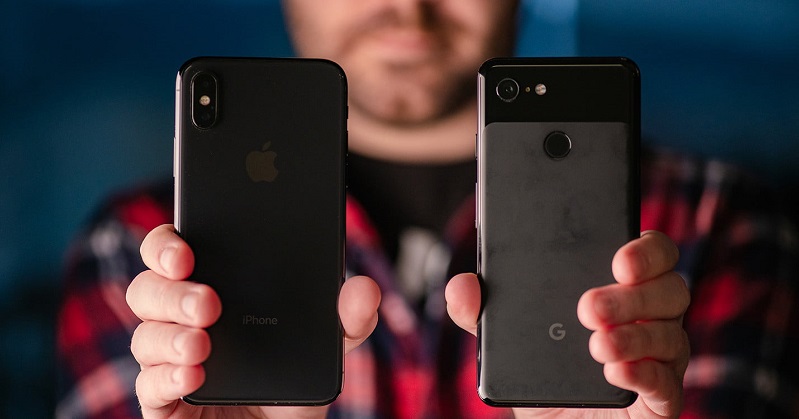
Move over Coca-Cola and Pepsi, there’s a new battle of the brands. Apple and Android are now two of the biggest global tech opponents in the ongoing mobile boom, accounting for around 99% of total sales worldwide, according to the IDC.
Though Apple was around to spearhead some of the first (and most important) advances in handheld tech, Android has since perfected some of its earlier features. Android hold around 75% of the worldwide market with the remaining 24% is held by Apple. However, both companies are neck-in-neck when it comes to critics’ reviews, and representation in pop culture. Most people know the basics: Android tends to perform better in terms of affordability and personalization, while Apple leads the way in software updates and messaging.
ADVERTISEMENT
In terms of applications, both Apple and Android users have access to the world’s leading apps via the Apple Store and Google Play. The most popular category for both platforms is entertainment. Leading industries, from video streaming to online casinos, offer deals and downloads that are unique to both platforms.
For example, video slots are one of the most common ways to game online, but users must have iOS or Android mobile devices to download the software to play on the go. The same goes for other popular app categories, like social media, video streaming, and digital wallets. This means those shopping for a smartphone will have to choose: Android or Apple?
Here’s a quick overview of some of the main differences between platforms, including the overall app experience and privacy.
The App Experience (Third-Party and In-Phone): Apple
The Google Play store has around a million more options than the Apple App Store does—but quantity doesn’t always equal quality. For example, the downloadable video slots mentioned above may offer the same gaming platform for Android and Apple gamers, but slow loading times can make or break a game.
ADVERTISEMENT
Overall, iOS apps perform better. Most users find them quicker in terms of resolution and loading times, as well as more intuitive in terms of navigability. In-phone apps from Apple tend to be leaner, as well. The last Android release from Samsun, the Galaxy Z, came with CNN and DirecTV pre-downloaded, which bogged down the platform.
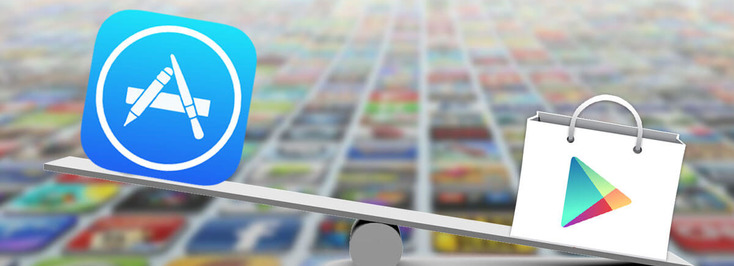
All About the Visuals: Android
Though Apple founder Steve Jobs helped introduce handheld smartphones to the world with his minimal design, Android has since found a way to make its phones more durable, with more screen space, and with better zoom options for the camera app.
Not only does this translate to a better handling experience for Android users, but the phone’s durability also means less expenses in terms of fixing shattered iPhone screens. Though the Galaxy has also had issues with cracked screens, there’s no piece of tech more fragile than the iPhone.
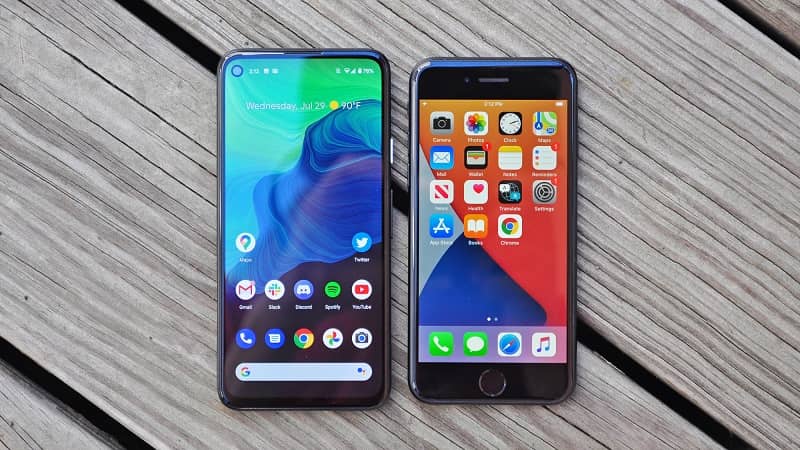
Customization: Android
Apple has done a stellar job of creating a suite of apps, products, and services that work well in tandem with one another. Some may say this is why Apple has so many loyal customers—they simply can’t opt out of the company’s expanding IoT scheme.
Android users are ideal for those looking to customize their smartphone experience. From home screen widgets to out-of-sight app storage to third-party replacement apps, Android platforms can be personalized.
Additionally, Android has a series of different manufacturers, from Samsung to Google, who have created unique themes and layouts for their devices. This even covers storage, which Apple is notorious for providing at a high price.
ADVERTISEMENT
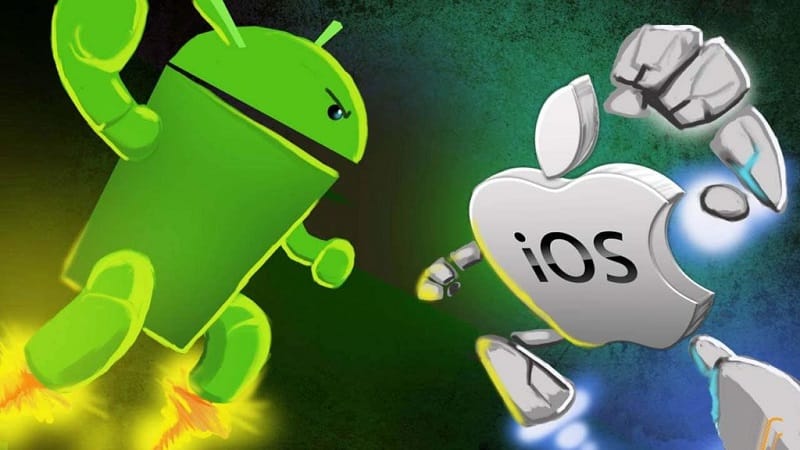
Privacy: Apple
There’s one aspect that should be weighed carefully by those deciding between Apple and Android: data collection and user privacy. Most smartphone users were stunned to hear that some apps may be tracking their activity even when they’re not actively using the application.
Regardless, both Apple and Android collect quite a bit of information from their users. However, Apple at least provides the option to opt-out of tracking from individual apps. Smartphone users are prompted whether they’d like an app to be able to track them while not in usage. Keep in mind that anyone looking for total privacy should look into mobile VPNs.
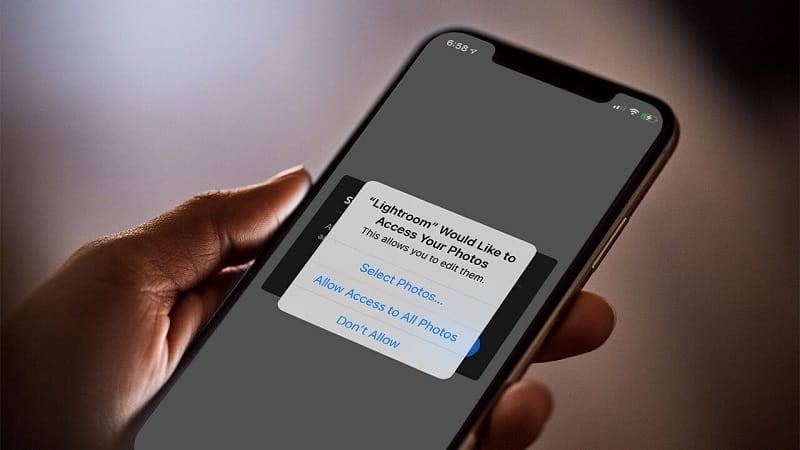
ADVERTISEMENT











